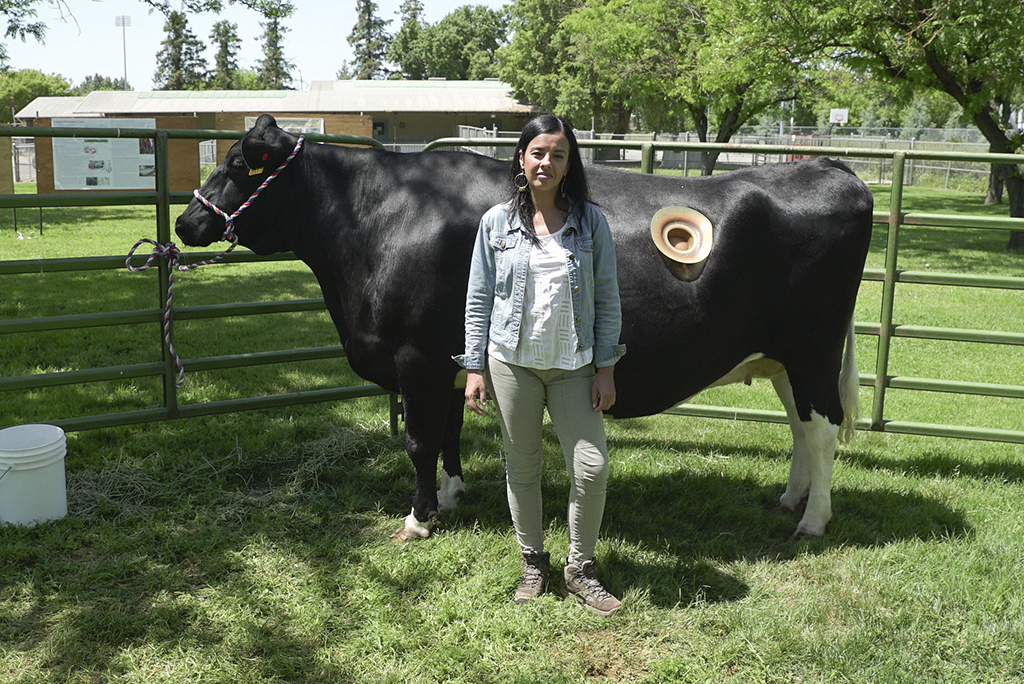
Scotland’s farmers are fighting climate change
Scotland’s meat producers say they are doing their bit to help the environment, after a TV documentary aired last night.
The BBC One documentary, Meat: A Threat To Our Planet, has seen presenter Liz Bonnin travelling around the world in a bid to investigate the impact that mankind’s hunger for meat is having on the planet’s environment.
She visited Texan megafarms, as well as the Amazon rainforest, where she discovered how beef farming is a leading cause of deforestation. Liz also met scientists and entrepreneurs urgently looking for solutions and, at a university in California, Liz puts her hand directly into the stomach of a cow – all in the name of reducing methane emissions.
In North Carolina she met an entrepreneur who uses his manure to power local homes, while in San Francisco, she became one of the first people in the world to try a lab-made chicken nugget – a product that might reduce the environmental damage caused by meat production.
Liz finished her journey on a small farm in Wales, where she met a family who have shifted their relationship with meat by taking the bold step to slaughter their own animals.
Stephen Young, head of policy at Scottish Land and Estates, said: ‘Scotland’s farmers are already playing a crucial role in fighting climate change through world-class production methods such as maximising the use of grass to feed livestock.

Liz Bonnin with a fistulated cow at UC Davis (Photo: Alisdair Livingstone)
‘This reduces greenhouse gas emissions when compared to systems used in other countries such as using soya and corn to feed livestock. Scotland’s climate is perfect for meat production with abundant rainwater and ample grass for grazing and feeding.
‘Agriculture is the backbone of many rural areas in Scotland. To help fight climate change and secure the future of rural communities, people should make a conscious decision to buy Scotch meat, which is also produced to some of the highest welfare standards in the world, rather than imported meat of unknown quality and provenance.
‘Overly simplistic methods for measuring the carbon footprints of farms with livestock need to be urgently changed. The methodology should be more realistic and take into account the work farms are doing to not only reduce emissions but also to capture carbon in our soils and trees, which has a positive effect on the environment.’
TAGS

